Brands are important, yet there are many controversies across etymology behind specific group brands. This can be because racism, politics, or simply just having less reliable information about word origins. These team names get individuals riled up at the pub.
10 Korea Or Corea
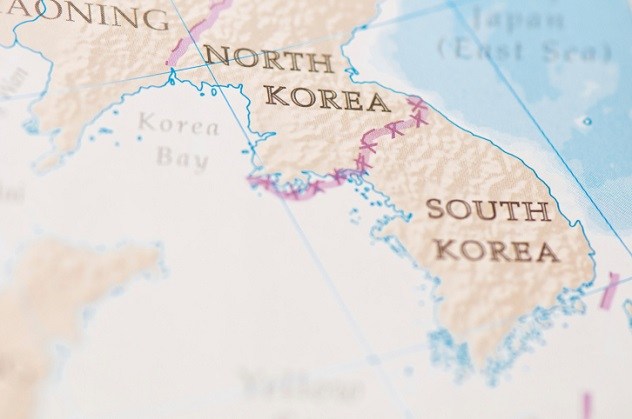
The term “Korea” had been derived from the Koryo dynasty, which was called “Gaoli” in Chinese and “Korai” in Japanese. Initial Western mention of the country had been through the 13th-century Franciscan friar William of Rubruck, who labeled as it “Caule.” Within the centuries, Westerners used numerous types, “Corea” appearing when you look at the sixteenth century and “Korea” into the 18th. By the twentieth century, “Korea” had been acknowledged in English, while variants of “Corea” were used in Romance languages. But some state that English spelling ended up being really a nefarious Japanese story.
This principle is dependant on the idea that while old English maps from nineteenth century spelled the united states as “Corea,” it absolutely was rebranded “Korea” by the imperial Japanese so Japan would seem first in English-language dictionaries. Chung Yong Wook, an historian from Seoul nationwide University, feels your Japanese pushed the alteration for the 1908 Olympics, so Japanese professional athletes would appear initially. The only real proof he provides is a 1912 memoir by a Japanese official complaining of rebellious Koreans spelling their country name with a “C,” though he’s sure there is more research hidden in archives. Proponents of the concept declare that “Korea” is spelled with a “K” just in English-speaking nations, although this would be a surprise to you aren’t an atlas in Berlin or Helsinki.
In 2003, a group of scholars from both the North additionally the Southern found in Seoul to drive for a national name modification. Historically, the North has taken the issue much more seriously, with North Korean development agency KCNA phoning it “a never-to-be-condoned, state-sponsored criminal activity.” This sooner or later spilled to the governmental globe as 22 legislators tried to press a bill renaming the united states the Republic of Corea, which were unsuccessful. Proponents regarding the “Corea” spelling point to other samples of non-European brands which are rendered with a “C”: Congo, Cambodia, and Comanche. They even claim that a “K” spelling indicates childishness and too little elegance, as in “skool” or “kitty kat.”
9 Inuit Or Eskimo
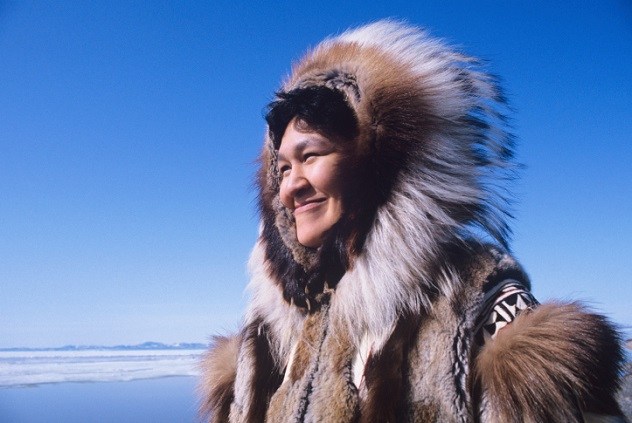
Many believe your message “Eskimo” is an unsatisfactory word to explain Inuit people, as well as in Canada and Greenland that is broadly proper. “Eskimo” has been used as a derogatory slur up against the local Inuit and Inuk individuals. Despite decades of political correctness knowledge, cultural attitudes all over word also affect men and women like Canadian soldier Corporal Esther Wolki, whom contemplated committing suicide after 10 years to be told through superior officers to “only stop and go home and be a drunk like the other countries in the Eskimos.” But while its a slur here, things aren’t therefore obvious in other places.
In Alaska, “Eskimo” is advised, since it is including the Inuit and Yupik peoples. The Yupik are an associated non-Inuit team with the same tradition; they don’t even have the phrase “Inuit” in their languages. While Yupik resembles Inuit in grammatical frameworks, the language groups are quite different within their language and are generally mutually unintelligible. Interestingly, the Inuit Circumpolar Council Alaska includes the Yupik with its bailiwick, but relates to both teams as “Inuit.”
An element of the rejection of “Eskimo” is the belief it is a corruption associated with the Cree word askamiciw, indicating “eater of natural beef,” that has been a racial slur employed by the Cree against their northern neighbors. But etymologists think this could, in fact, be people concept based just on a linguistic coincidence. Some say it’s in the same way most likely that “Eskimo” originated in a word definition “he ties snowshoes.” Others dispute this based on the proven fact that the Cree would have worn snowshoes. (However, usage of cheeseburgers and nachos performedn’t stop Americans from discussing the French as “cheese-eating surrender monkeys,” either.)
There is also a vintage college principle the word had been devised by Jesuit missionaries, who referred to pagan Inuits as “the excommunicated ones,” that also isn’t specifically nice. No matter, etymology notwithstanding, it is always far better to prevent the term “Eskimo” in Canada or Greenland. (folks inside second choose to be named Greenlanders or Kalaallit.) It’s evidently appropriate in Alaska, however might as well ask in the event that person you’re conversing with is Inuit or Yupik and clear it up from the beginning. Maybe ask their particular title first therefore you’re not a whole weirdo.
8 Slav
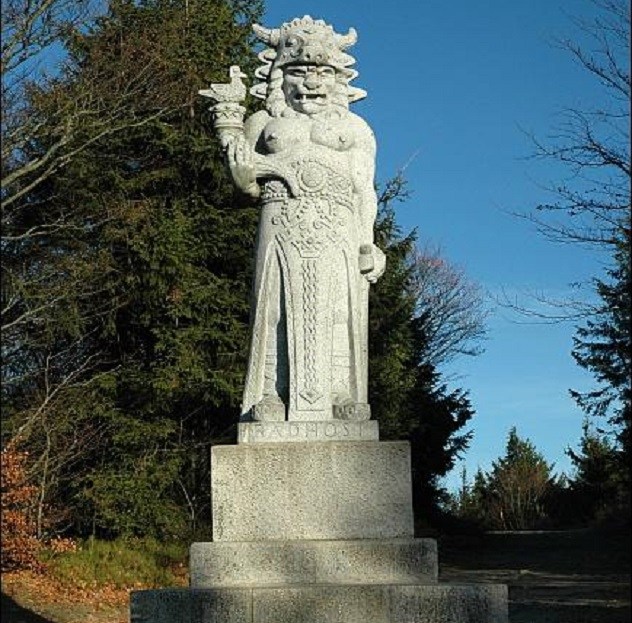
Photo credit: Semik
The Slavic-speaking individuals of Eurasia (including Russians, Poles, Ukrainians, Serbs, Czechs, Slovaks, and many more) are collectively known as Slavs predicated on their particular language household. But there is however confusion over wherever “Slav” came from and just how it relates to the English term “slave.”
Initial concept is the fact that “Slav” derives from slovo, indicating “word,” with the ancient Slavs dividing society into those who spoke language they discovered comprehensible and people that couldn’t. This fits in nicely utilizing the undeniable fact that the word for “German” in many Slavic languages derives from nemec, a vintage Slavic word definition “mute.” The second major principle is “Slav” derives from slava, or “glory,” that will be an understandably preferred theory among Russian nationalists and Polish humanists. One-piece of proof with this concept is many Slavic kings had names ending in “-slaus,” but that seems somewhat contrived.
The next principle is the fact that the Slavs derived their name through the Latin word sclavus, indicating “slave,” in turn derived from the Greek sklavos. But this is apparently putting the cart before the horse. The ancient Romans traditionally used servus to explain slaves, whilst the Greeks utilized doulos. Sklavini initially starred in sixth-century Byzantine texts, referring to the migrating Slavic teams entering Eastern Roman territory, and it also has been taken because of the Greeks through the Slavs, not one other means around. Due to the fact Byzantines grabbed Slavs in warfare and marketed them to the Mediterranean slave market, sklavos became a synonym for “slave,” nonetheless it originally known the ethnic teams. This became the basis associated with Medieval Latin word sclavus, the Old French esclave, and finally the English word “slave.”
Going back to the beginnings of “Slav,” scholar B. Philip Lozinski reported in 1964 so it has its origins when you look at the root term “slav-” meaning “worshiper,” which will imply the first Slavs had religious unity. No matter what explanation, Slavic men and women have had etymological troubles more recently, during 19th-century immigration into United States. Until the 1920s, Slovak-Americans had been referred to in a variety of ways, including “Slovac,” “Slavack,” “Slovish,” and “Slavish.”
7 Bulgar

Picture credit: Evgord
The greatest source of this term “Bulgar,” which resulted in “Bulgaria,” continues to be as yet not known, but the majority of have actually attempted to get to the base of it. Twelfth-century Granadian tourist al-Gharnati believed “Bulgar” based on balar, a scholar, but he had been likely mistaken. One popular early modern-day concept stated it comes from the Turkic term bulgha, meaning “to blend,” a reference towards expected cultural heterogeneity associated with the very early Bulgars. This concept happens to be considered derogatory, plus some state bulgha really meant “mixing,” maybe not “mixed.”
Another supposed beginning could be the name of Volga River, which derives from Turkic and Slavic words for moisture, but the Bulgars are discussed by-name before literate society achieved the Volga basin, to ensure seems not likely. Another claims the origin is bel plus gar, indicating “five tribes.” Still another promises the term arises from burgaroi, a word for mercenaries stationed regarding Roman edge.
Some have actually drawn a match up between the Bulgars and a Turkish tribe from north Asia known as the Buluoji, suggested by an earlier Arab reference to the Bulgars using Chinese script plus the standard Bulgar diary using a pet cycle similar to the Chinese. But that just increases a chicken-and-egg problem when it comes to title. It is clear that Bulgars could be delicate about their name beginnings, thinking about the rude derivatives of their cultural title. The English word “bugger,” definition “to sodomize,” originated from Bulgarian, a reference to your Bogomil heretics and medieval costs of sodomy against them. In the early 20th century, “Bulgarian” had been used as a code word for gay males and lesbians in ny theater, and an effort to reclaim the word for a queer myspace and facebook in the early 1990s generated Usenet flamewars with enraged Bulgarian nationalists.
6 Hispanic Or Latino/a
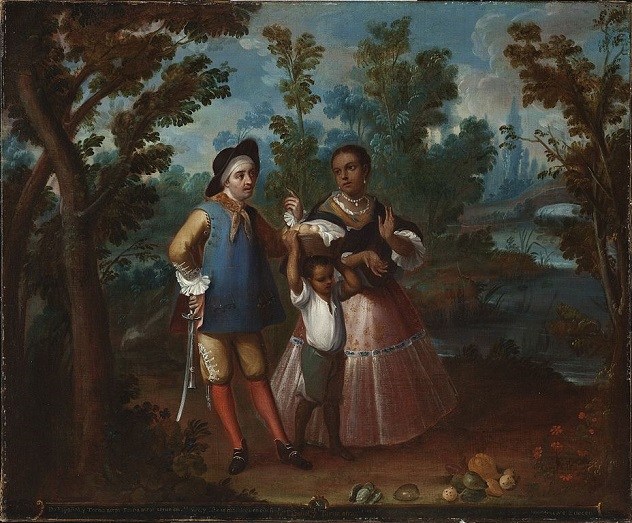
Picture credit: Juan Patricio Morlete Ruiz
The words “Hispanic” and “Latino/a” are often used interchangeably, but they don’t have precisely the exact same meaning. “Latino/a” is a shortened as a type of “Latinoamericano,” referring to people whoever origins result from components of the Americas colonized by individuals talking languages based on Latin. Taken actually, this might not only feature Spanish- and Portuguese-speaking Central and South America, but conceivably additionally Quebec. “Hispanic,” conversely, suggests “pertaining to Spain” and is derived from the Latin term for the Iberian Peninsula, said to come from a much earlier Phoenician term indicating “land of rabbits.” It gained prominence throughout the Nixon administration after a push by bureaucrat Grace Flores-Hughes, and it would later on allow it to be into the formal US Census.
Some resisted the nomenclature, insisting that “Latino” and “Latina” just sound better in Spanish, while “Hispanic” discriminates against people that have shared local American or African descent. Some declare that those who insist upon “Latino/a” tend to be taking a stronger governmental stance, one that not everyone cares to follow along with. Some have decided to slice the knot entirely and prefer to be known as by even more particular terms like “Mexican-American,” “Cuban-American,” or “Chicano/a,” which relates only to those of Mexican descent and is produced from the Nahuatl word Xicana, an abbreviation of Mexicana (obvious meh-chi-ka-na). A much better amount of people don’t care in either case: While Hispanic is preferred over Latino by a 2-to-1 difference (and 4-to-1 in Tx), up to 50 percent of Lathispanicanos expressed no certain preference over one or the other.
5 Yankee
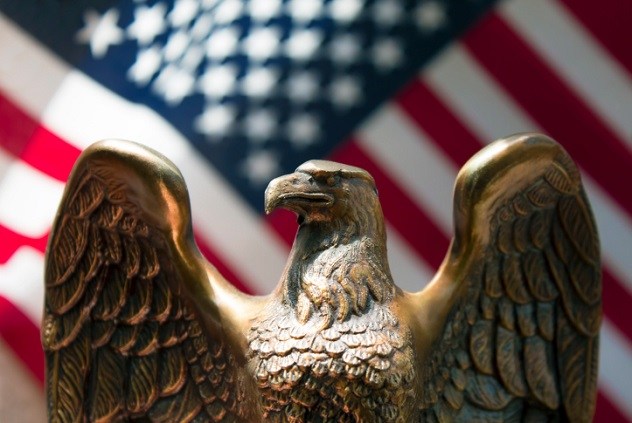
Into the European, a Yankee is an American.
To an American, a Yankee is a New Englander.
To a different Englander, a Yankee is a Vermonter.
To a Vermonter, a Yankee is somebody who eats apple-pie for morning meal.
And to a Vermonter who consumes apple-pie for break fast
a Yankee is an individual who consumes it with a blade.
As you’re able tell from preceding quote, the actual concept of “Yankee” is unclear. It absolutely was regularly describe the Union through the United states Civil War and ended up being typically always describe all Americans by folks from outside of the US. The etymology regarding the term is similarly perplexed.
Daniel Webster (of dictionary popularity) first had a break at it in 1810, claiming it based on the Persian janghe, meaning “a warlike man” or “a quick horse.” By 1828, he was claiming it originated in Yengeese, a Native US pronunciation of “English.” A particularly well-known theory is the fact that it comes down from Dutch, a mix of “Jan” (a favorite first name) and kees (meaning “cheese”). That principle is well known, however it generally seems to raise more questions than it answers. The united states Navy feels that it originates from Dutch merchants phoning American sea captains yankers, meaning “wrangler.” Various other concepts consist of: a French corruption of “Anglais,” a word produced by the Scottish term “yank” (referring to a hard blow), and a British appropriation associated with the Cherokee term eankke, meaning “slave” or “coward.”
While nothing of these theories can be proven, there is certainly proof that it may in the end have a local American source. The Lenni-Lenape regarded the English as Yankwis, though more often when you look at the derivative Yankwako, or “English snake.” Other sources say that the Lenni-Lenape word regarded individuals from New The united kingdomt particularly, although the English right were called Saggenash and Virginians were only ominously labeled as “long knives.”
4 Squaw
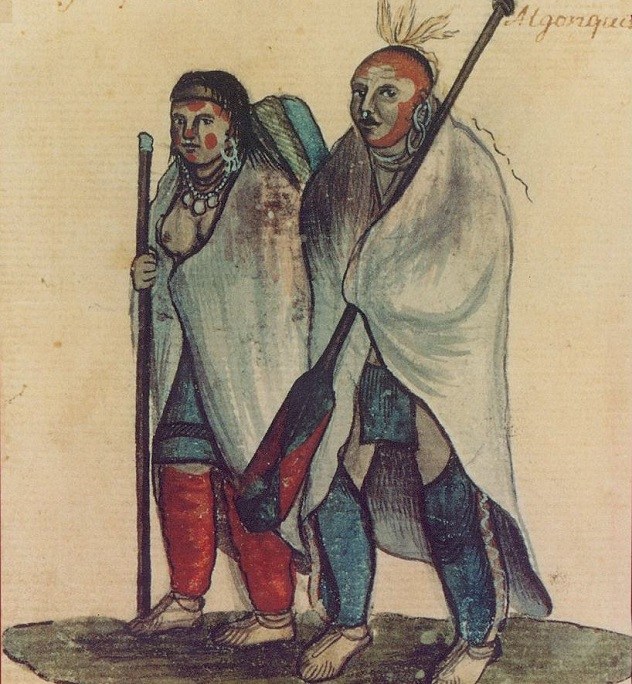
Picture via Wikipedia
The phrase “squaw” is typically considered an unpleasant term to describe local US ladies. The situation seems to stem from a propensity of white Americans to make use of the word “squaw” in a pejorative way and also as a synonym for “mistress” or “prostitute.” It had been additionally commonly used in unpleasant depictions of Native People in the us in film and tv, in which they would talk in broken English. (Even though it is most likely that historical Native Americans who spoke English as a second language would have talked it inexpertly, they wouldn’t have all sounded the exact same as well as wouldn’t have got all utilized terms like “papoose” and “heap huge.”)
The 1973 guide Literature of a Native America asserted that word “squaw” had been a non-native innovation, probably the consequence of a French corruption of the Iroquois otsiskwa, referring to a woman’s intimate organs. However, linguists and Algonquian speakers disagree. The word ultimately derives from a Narragansett term that merely meant “woman,” and variants associated with the term occur generally in most Algonquian languages.
Its first written appearance was at the 1622 guide Mourt’s Relation: A Journey of the Pilgrims at Plymouth, and it also was found in a non-derogatory manner. It started to accept derogatory shade inside belated 19th century, especially following the 1970s. One issue that arises into the etymological confusion is the fact that men and women forget that while “squaw” may not have been an ethnic slur, it was utilized as you since at least early twentieth century. The truth that it absolutely wasn’t always a slur does not mean it’sn’t one today, as well as the history doesn’t give everyone else the right to fling it about willy-nilly while protecting by themselves with linguistic arguments. However, some speakers of Algonquian languages tend to be irritated that their particular term has been made prohibited and involving wretchedness, all due to white racism and well-meaning efforts of non-Algonquians who had been only acquainted with your message in its worst form. Overall, its most likely far better just steer clear of the term, unless you’re in fact talking to some one in an Algonquian language.
3 Burma Or Myanmar

Photo credit: Corto Maltese
The southeast Asian country perched between Bangladesh and Thailand is officially referred to as Myanmar, but also known as “Burma,” as it had been when understood until its title had been changed by the government in 1989. (as well, the administrative centre town Rangoon became Yangon.) This controversy stems from the reality that numerous foreigners think that because the name modification ended up being orchestrated by a non-democratic federal government without present permission regarding the Burmese men and women, it lacks authenticity. Inside feeling, the usage of “Burma” is a pro-democracy political statement, which is without a doubt title for the country employed by the well-regarded democracy activist Aung San Suu Kyi along with her followers.
The position associated with the Naypyidaw government is the fact that “Burma” relates simply to the absolute most prominent cultural team, while “Myanmar” is much more inclusive of the united states’s diverse individuals. That is contrived, as both words share the same origins and variant kinds of both “Myanmar” and “Burma” were utilized for centuries, utilizing the previous typically discussing the language additionally the latter referring to individuals. Uk colonialists switched “Burma” to the country’s title, and had been certainly no more respectful of this wishes of this Burmese folks versus present junta. It seems that things tend to be just starting to alter of late, as Barack Obama utilized the term “Myanmar” when hosting President Thein Sein in 2012, with a few saying that changing the nomenclature might be an affordable solution to get some good goodwill from junta which help to drive for further liberalization. Meanwhile, Aung San Suu Kyi has started to use euphemisms like “our nation” and “this country of ours,” though she preserves that “Burma” is a less strenuous title for people from other countries to pronounce.
2 Pakeha

The Maori word for a brand new Zealander of European lineage is Pakeha. From about 1815, this is utilized for any person produced in England who stumbled on brand new Zealand, and later for anyone of fair epidermis born in the united kingdom. In more the last few years, the definition of has actually broadened aided by the arrival of Asian immigrants now applies to any New Zealander that is maybe not of Maori or Polynesian lineage. Newer and more effective Zealanders dislike the definition of, believing your message is naturally unpleasant and derogatory, the equivalent of “white pig” or maybe meaning “bugger ya.” Other white brand new Zealanders have accepted the phrase as a self-identifier of pride, signaling their particular history and place in brand new Zealand while showing respect for initial Maori residents and serving as a more convenient and all-natural title as compared to antiseptic “Caucasian” or “European brand new Zealander.”
Those that dislike the phrase genuinely believe that its source is a mix of what poaka (“pig”) and keha (“flea”). But this is certainlyn’t totally persuading as each of those types had been introduced to brand new Zealand by Europeans, and poaka most likely originated in the English porker. One very early concept proposed the term hails from the word Paakehakeha, which referred to mythical ocean gods with all the kinds of men and fish, nevertheless vowels found in the two words don’t appear to match. Another chance is Pakepakeha, of a kind of pale-skinned and mischievous woodland folk. These elf-like creatures were in addition linked with the Patupaiarehe, who were fair-skinned people who have beautiful sounds and magical reed ships. These mythological etymologies make sense thinking about the first term always explain Captain Cook and his guys ended up being tipua or tupua, indicating “goblin.” Irrespective, there is little research the term Pakeha ever had a derogatory definition.
1 Woman

With the rise of feminist discourse in the twentieth century, there’s been a response contrary to the inherent sexism of word “woman.” That “man” can be used as a synonym for the human race in general and male humans in particular is grating and has led to the altering of terms such “chairman” and “policeman” together with development of the alternative spelling “womyn” for people in the feminine gender. But, etymologically, it is the usage of “man” to refer to males just which a corruption.
In Old English, the word “man” regarded humans as a whole without gender connotation, as remains the case in German. The phrase for females had been “wyfman” therefore the term for guys was “were,” pluralized as “waepman.” The term “wyfman” slowly developed into “woman,” while “wyf” began to relate to a married woman inside twelfth century and gained the excess meaning of “female marketeer” or “saleswoman” in the sixteenth century. The easy “adult female human” concept of “wyf” had been lost, whilst the words “were” and “waepman” had also been lost because of the 13th century. Individuals had forgotten all of this because of the early modern period, joking that “woman” based on “woe man” or “wee males.”
Sir Thomas More penned in 1534: “Man himselfe borne of a female, is within deede a wo guy, which, ful of wo and miserie.” And a 1653 estimate from Richard Flecknoe appears in Oxford English Dictionary: “Say of lady worst ye can, What prolongs their woe, but man?” As amusing since these might, they truly are people etymologies at best.
Interestingly, the identified correspondence between “female” and “male” normally a misnomer, as both terms had split origins. “Female” originated in the Old French femelle, which derived from the Latin femina (definition “woman”), while “male” originated in the Old French masle through the Latin masculus (meaning “little man”). The change from Middle English femelle to your modern English equivalent happened in the 14th century, generating a perception of an asymmetrical commitment amongst the words. Some say that, despite the etymology, the fact remains your term “man” has during the last seven hundreds of years been made use of mainly for men, and therefore the need for sex natural pronouns is good.
